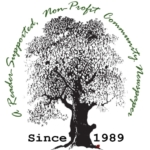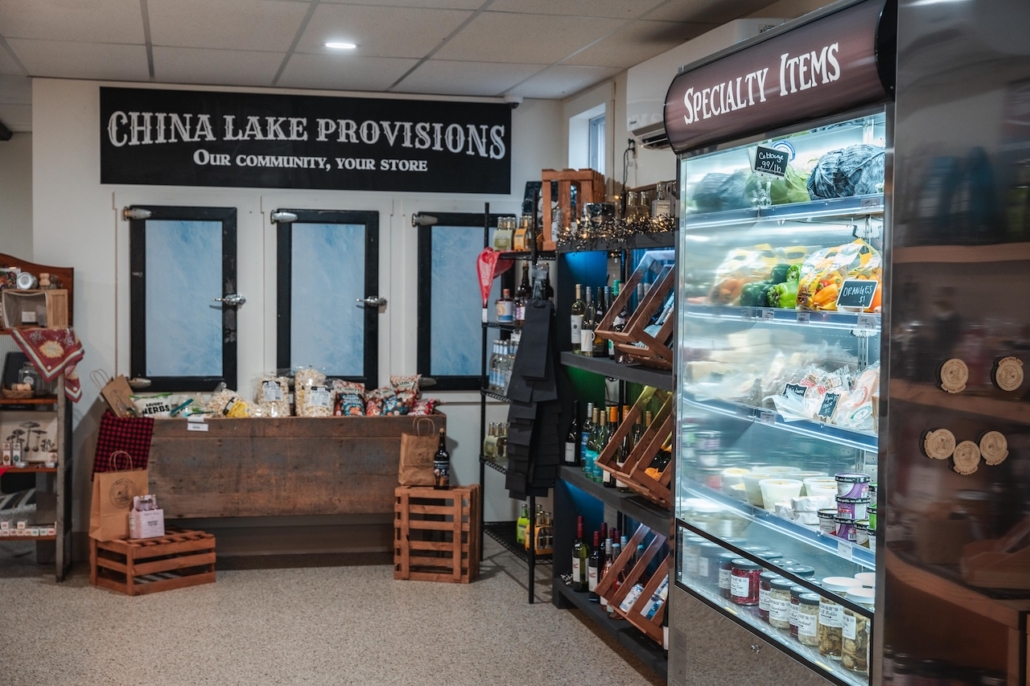China planners discuss ballot questions for November
 by Mary Grow
by Mary Grow
China Planning Board members used their July 13 meeting to continue to work on planned questions to submit to voters on a Nov. 2 local ballot.
Board Chairman Randall Downer said the draft Solar Energy Systems Ordinance had been submitted to selectmen in advance of their July 19 meeting. Board members are asking selectmen to ask voters to approve it.
Board members further intend to ask voters to decide a question that will become part of the ordinance, after it’s answered: how should solar panels be counted when calculating the percentage of a lot that is covered by man-made structures that impede or change the natural flow of rainwater?
They currently plan to ask voters to approve one of three choices, in a ballot question separate from the ordinance.
— A solar panel counts entirely as an impervious surface diverting rainwater, allowing for the panel’s being tilted (to get more sunlight) so that it covers a little less ground than its actual dimensions.
— A solar panel does not count at all; only its footings that cover a relatively small amount of ground are considered impervious surfaces.
— A compromise proposed by planning board member Scott Rollins: divide the panel area by two, so that for calculation purposes it covers half the area it actually covers.
The point of limiting lot coverage is to allow rainwater to be absorbed into the ground, rather than running into water bodies with whatever pollutants it picks up. China’s current ordinance limits lot coverage to 15 percent in shoreland, stream protection and resource protection areas and to 20 percent in the rest of town.
Solar developers have argued that because the ground under an array of solar panels is covered with grass and other low plants and is mowed no more than twice a year, it adequately absorbs run-off from the panels.
Board members figured that having panels count completely would allow a solar developer to cover up to 20 percent of a lot with panels. The compromise, counting half the panel areas, would allow up to 40 percent of the lot to be covered. If the panels did not count at all, almost an entire lot could be covered, except for setbacks from lot lines.
Board members postponed sending the triple question to selectmen until they have the opinions of two members who were unable to attend the July 13 meeting.
The other potential ballot issue is amending shoreland regulations in China’s Land Use Ordinance to meet state Department of Environmental Protection (DEP) requirements for state approval. This issue, too, turned out to involve lot coverage.
China’s current shoreland ordinance does not count driveways, parking areas and similar impervious (or non-vegetated, in DEP parlance) surfaces when calculating lot coverage. DEP says it should.
The change would increase the amount of lot coverage in many shoreland lots. Increasing the lot coverage, planning board members said, could limit future expansion, like applying to add a deck to a camp.
Resident Brent Chesley suggested from the audience that the increase could be offset if another amendment were proposed to increase maximum lot coverage to 20 percent in the shoreland (and the other two restricted areas). DEP regulations allow 20 percent, he said, citing Chapter 1000 in DEP guidelines.
Downer referred to China’s Phosphorus Control Ordinance, approved in 1993 to try to minimize the amount of phosphorus entering China Lake and feeding algal blooms, as a separate limit.
Board members postponed action to their July 27 meeting. In the interim they will ask to have the proposed amendments and, at Chesley’s suggestion, a link to the DEP guidelines posted on the China website, china.govoffice.com, for residents’ information and comments. Downer and Rollins also discussed looking at lakeside lots to see what effects the proposed changes would have.
Responsible journalism is hard work!
It is also expensive!
If you enjoy reading The Town Line and the good news we bring you each week, would you consider a donation to help us continue the work we’re doing?
The Town Line is a 501(c)(3) nonprofit private foundation, and all donations are tax deductible under the Internal Revenue Service code.
To help, please visit our online donation page or mail a check payable to The Town Line, PO Box 89, South China, ME 04358. Your contribution is appreciated!





Leave a Reply
Want to join the discussion?Feel free to contribute!